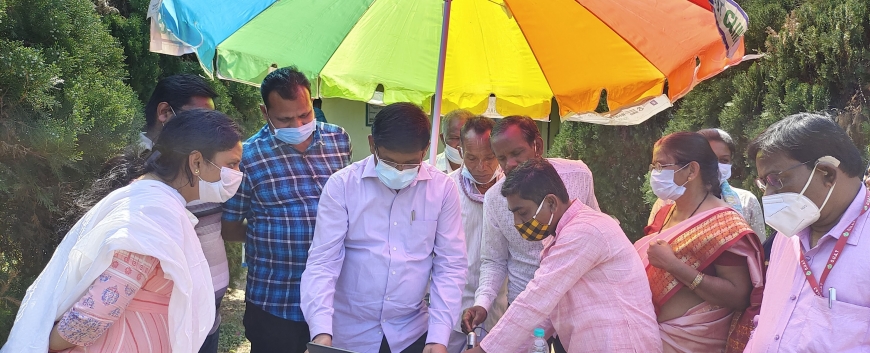Scaling-up Digital Tools for Building the Adaptive Capacities of Small Farmers: Promoting Virtual Village Knowledge Centers in Four KVKs, Odisha for Effective Knowledge Management
“Give a man a fish and you feed him for a day. Teach a man how to fish and you feed him for a lifetime” – Lao Tzu
In essence, setting up Village Knowledge Centres (VKCs) is a similar concept to the latter, especially in terms of knowledge transmission and skill enhancement. The Climate Resilience Project, funded by the Norwegian Embassy, is a collaborative initiative with the Orissa University of Agriculture and Technology (OUAT), Assam Agricultural University (AAU), Indian Council of Agricultural Research - National Rice Research Institute (ICAR-NRRI), M S Swaminathan Research Foundation (MSSRF), International Water Management Institute (IWMI) and Norwegian Institute of Bioeconomy Research (NIBIO).

The RESILIENCE project has been continuously striving to build adaptive capacities and required expertise among both men and women farmers to become resilient to the changing climatic conditions, risks and market dynamics. And VKCs play a significant role in helping farmers tackle the effects of climate change in India and enable them to make informed choices by enabling access to information, knowledge and skills. It promotes gender equality and social inclusion and is an exceptional method for empowering women in various aspects of agriculture and livestock, such as inputs, marketing, and rural development.
To date, five VKCs have been set up and are operating as part of the RESILIENCE project’s knowledge management activity - two in Odisha (one each in Ganjam and Cuttack districts) and three in Assam (one in Sibsagar and two in Golaghat districts). As the post-COVID-19 era has progressed, digitization has become more of a necessity. It is essential that the concept of VKCs embraces digitalization as well. As VKCs supported by ICT technologies will enable farmers to connect through mobile phones and social media, and thus facilitate information and knowledge sharing faster and more efficiently. Following the success of the VKCs, the Virtual Village Knowledge Centres (E-VKCs) are now established in 4 KVKs of Nayagarh, Kandhamal, Jagatasinghapur and Kendrapara in Odisha as an upscaling initiative with the support of OUAT and NRRI.
To build the farmers' resilience capacity, the virtual VKCs have been established after formal hands-on training on providing mobile phone-based audio advisories, handling farmers’ helpline services, audio-conference, video-conference, phone-in programme, and conducting Plant clinic etc through virtual mode. Scientists from these KVKs have been trained to use the digital tools to disseminate the need-based, location-specific content and advisories. For its optimal operation of each KVK, an action and follow-up plan has been developed. The goal is to reach 500 farmers through each KVK in the first phase. Follow-up meetings will be conducted periodically to ensure that the activities are executed as planned. This Virtual VKC initiative complements and bolsters the activities of the existing KVKs in extending agricultural extension services. Following the reception and success of these E-VKCs, more capacity building will be undertaken.


